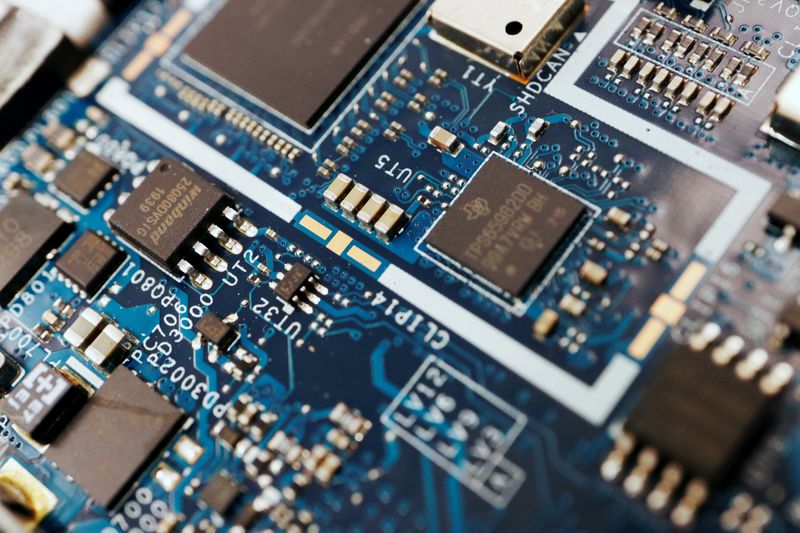TAIPEI (Reuters) -Taiwan said on Friday it has not been informed about a so-called 'Chip 4' meeting that would include it, the United States, South Korea and Japan but added the island has always cooperated closely with the United States on supply chains.
South Korean Foreign Minister Park Jin this week said Seoul expects to attend a preliminary meeting of the four chip manufacturing nations, describing the gathering as U.S.-led.
He did not elaborate on what would be discussed.
A meeting would come amid a global chip crunch that began two years ago with the onset of the pandemic and on the heels of a new U.S. law this month called the CHIPS Act that includes $52 billion in subsidies for companies that make chips or conduct chip research in the United States.
The Biden administration has also sought deeper cooperation with Japan and South Korea to become more competitive with China's science and technology efforts.
The timing, location and other details of the CHIP 4 meeting have yet to decided, said a South Korean official who was not authorised to speak to media and declined to be identified.
Taiwan's economy ministry said in a statement to Reuters late on Thursday it did not yet have any relevant information.
"In past exchanges and dialogue between Taiwan and the United States, the United States did propose similar ideas, but there was no specific content at the time," it added.
The island has been keen to show the United States, its most important international backer at a time of rising military tensions between Taipei and Beijing, that it is a reliable friend and semiconductor supplier.
Taiwan and South Korea are the world's two largest chip powerhouses.
Taiwan's TSMC controls about 54% of the global market for contractually produced chips, supplying firms such as Apple (NASDAQ:AAPL) and Qualcomm (NASDAQ:QCOM) which don't have their own semiconductor facilities.

South Korea is home to Samsung Electronics (KS:005930) and SK Hynix which together supply more than half of the global memory chip market.
Asked about the meeting, Japan's Cabinet Secretary for Public Affairs Noriyuki Shikata said semiconductors are a “very strategically important industry” for Japan and that “in due course, there may be better cooperation among the countries.”